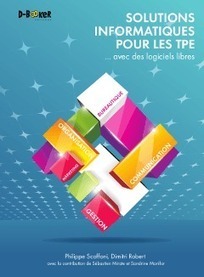Visual Studio Team Foundation Server 2015 est une plateforme homogène de contrôle du code source, de gestion de projet et de collaboration des équipes sur laquelle repose la suite d'outils Microsoft de gestion du cycle de vie des applications (ALM), qui aide les équipes à mieux travailler, à collaborer plus efficacement et à livrer plus systématiquement des logiciels de qualité.
Research and publish the best content.
Get Started for FREE
Sign up with Facebook Sign up with X
I don't have a Facebook or a X account
Already have an account: Login
For Product Owners/Product Managers and Scrum Teams: Growth Hacking, Devops, Agile, Lean for IT, Lean Startup, customer centric, software quality...
Curated by
Mickael Ruau
 Your new post is loading... Your new post is loading...
 Your new post is loading... Your new post is loading...
|
|






















L'automatisation du processus de mise à disposition des logiciels permet à des équipes entières de suivre les actions de chacun, les transactions et les artefacts de projet tels que les impératifs, les tâches, les bogues, le code source et les résultats de génération et de test. Collaborez, gérez vos référentiels et automatisez les processus de développement. Même si votre équipe est peu nombreuse et composée de débutants, grâce à Team Foundation Server, elle peut viser loin. Remarque : TFS Express est limité à cinq (5) utilisateurs.